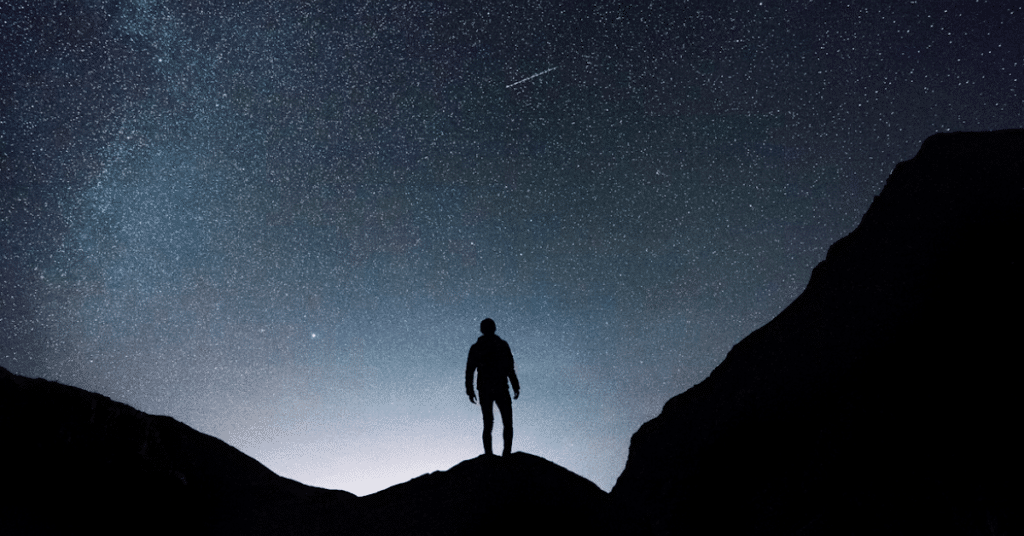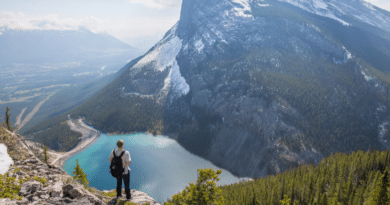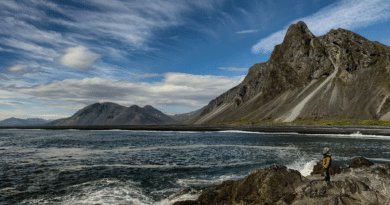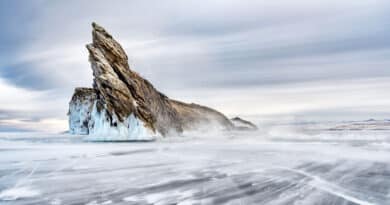Trekking In The Moonlight: Exploring The Benefits Of Night Hiking
The benefits of night hiking might not be apparent when you first think about it. Surely, it’s just more dangerous to be rummaging around on a trail in the dark? In fact, there are many unique avenues to enjoyment when you hike in the early hours, or after sunset.
Night hiking is most often attempted just after sunset and before sunrise. To do it safely, hikers are often advised to invest in a headlamp or flashlight with a red-light setting. This is better for night hiking than the standard white-light setting.
Human eyes are less sensitive to the red light’s longer wavelengths and you night vision improves with the gift of this technology.
Is It Safe?
Night hiking can be dangerous and certainly there are more precautions to consider before you explore a trail without sunlight. It’s all about planning and not taking that first step before you’re sure you have all the right gear.
Bear in mind that you should know your route and the possible conditions that might impede success in relation to your expertise. Newbies should be mindful of dangers at hiking at night and stick closely to known trails. The way ahead should be always marked and clearly visible.
Leading on from the above, it might be wise to practice the journey first in daylight and not blunder into any surprises after nightfall. Ideally, you should know your trail in detail, regardless of whether you’re an expert or a beginner.
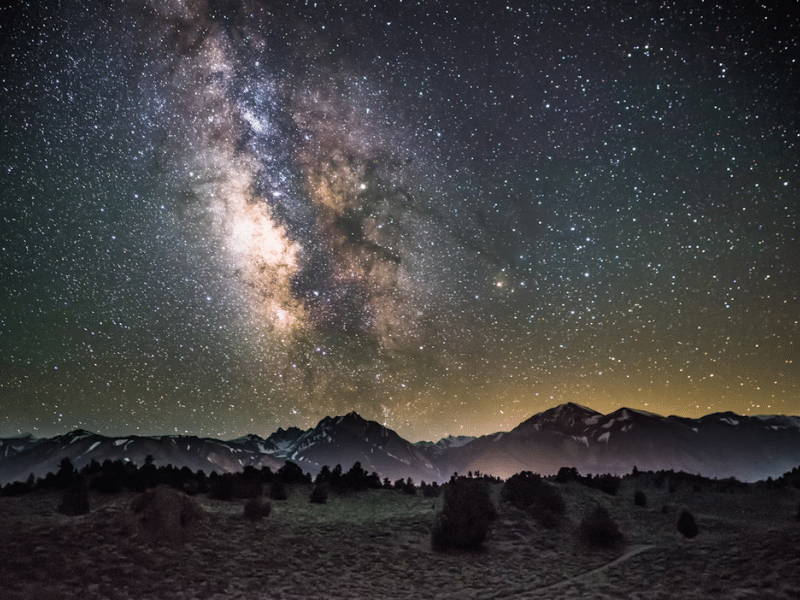
Take some time to evaluate your route, download maps and dive into as much local knowledge as possible. Then stay alert out there and don’t deviate from the trail markers.
Of course, there are countless benefits to gain from night hiking. We’ll go into all these in more detail below. Just know that the magical experience can enhance the quietness around and leave you more immersed in your surrounds.
There’s nothing like walking under a starry sky on an empty trail. At times, you might truly feel at home out there, accompanied by a group in which everyone is experiencing the same thing.
You can also seriously improve your skills by taking on the challenge of a nighttime hike. Just remember to carry the night gear you need and follow the usual safety precautions. Take note of potential wildlife, terrain, weather, and obstructions.
How To Prepare For Hiking At Night
We don’t want to scare you off with too much red tape, but it’s important to carry protective gear when you’re preparing to hike at night. There’s a chance you could find yourself in a situation where you stumble upon a wild animal.
You need to be realistic about what could potentially happen on the trail you’ve chosen. This will help you to prepare accordingly. For example, bear spray might be a valuable defensive aid, depending on where you are in the world.
Everything you carry should be lightweight – you don’t want to compromise your speed and efficiency. No one should be so exhausted they can barely catch their breath or look up to enjoy a starry night.
Other hiking gear, like poles, hiking shoes, caps and glasses might also prove to be important as your adventure unfolds. There are simple things you can do to level up your night hiking experience. Carry a light backpack and wear protective clothing – ensure everything you take with you is hike friendly.
What To Pack For A Night Hike
Waterproof, lightweight and breathable clothes are essential. You might also want to add some reflective elements to your body, like stripes or armbands. Remember to pack extra socks as well!
If you bring a tent bag, sleeping bag and extra clothes you need to be able to bear the weight without too much discomfort. Camera, batteries, and power banks can only be brought if you use your space efficiently. Then there are the essentials for lighting a fire, which you might need as well.
Night hiking necessitates other tools you might not have considered, like a reliable light source. Headlamps that can be worn comfortably on your forehead are a life saver. Ensure you rely on light sources with good battery, brightness settings and a snug fit if you’re wearing them as you hike.
A fully charged phone could be the difference between wandering an unlit field or strutting down the trail like a modern-day John Muir. You might need to download on offline map of your trail onto a device as well.
That’s about all we have to say about safety precautions. Remember that hiking at night should offer an enhanced experience of the outdoors. There are all kinds of benefits of night hiking, which we’ll get into below.
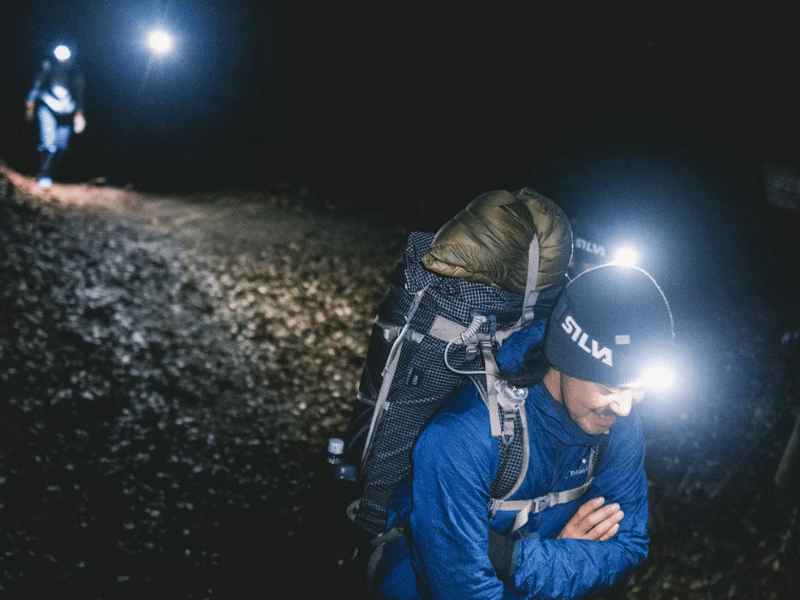
5. Evolve Your Hiking Skills
One of the obvious benefits of hiking at night is the opportunity to learn new skills. Trails into dark forests and under dark skies unlock secrets you would have otherwise missed. Not only do you learn interesting things about your environment, but you also make discoveries about yourself as well.
You need to pay close attention to the trail when there’s less to see around you. Challenges in hiking can hone your focus on the task at hand and help you to develop your reflexes and decision making under pressure. We’d learn nothing if every trail was smooth, flat, and well lit.
Of course, day hiking under sunlight does have its own obstacles, but novice hikers are likely to vastly improve their experience by safely venturing onto trails at night.
4. Soak Up Some Natural Peace
There’s nothing like a quiet, starry night to settle the soul and make you feel more at home in the world. Dwarfed by endless space, you can feel suddenly grounded and humble as you meander along on your tiny trail.
Night hiking can be restorative and relaxing when you’re separated from the irritations of everyday life. There are no crowds on the trails after dark and the atmosphere is much more serene. It can be a very effective activity for reducing stress and we all know this calm is great for your mental health.
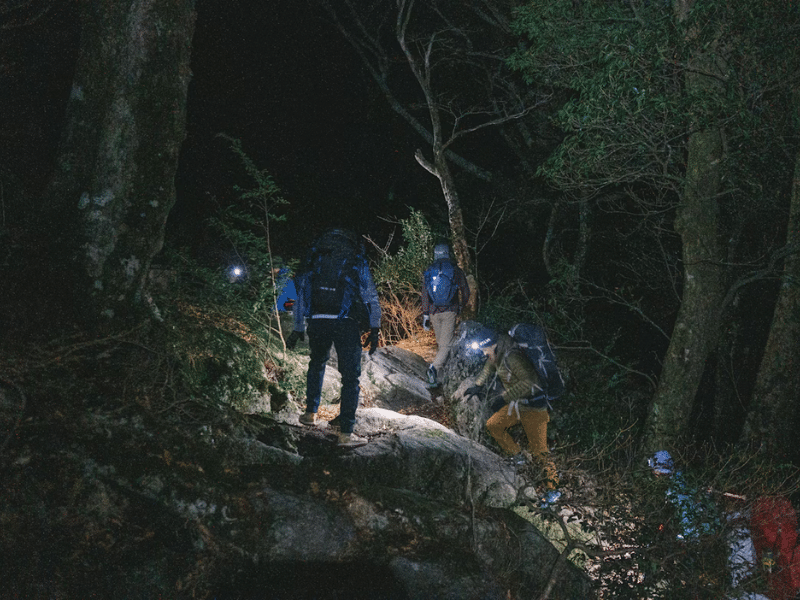
3. Discover The World Under Moonlight
We are used to seeing illuminated landscapes by day, but how many of us get to see those same worlds by moonlight? The luminaries have a special power when they’re working alone against the darkness. You might find your favourite trails transformed as you head out on a night hike.
Slowly, the waning light of a sunset bleeds into the inky depths of night. Your eyes adjust and the moon’s natural aura does its work over the hills, trees, and surrounding waters. You can be privy to a magic you never knew existed. Just be aware you need to hike somewhere without light pollution.
2. Enjoy Cooler Temperatures
All you sweaty, fast-paced hikers will surely welcome that dip in temperature as the sun recedes from view. Nighttime hikes offer cooler climes and a chance to breathe, wrapped in any layers you shed before. You can also escape extreme temperatures if you’re hiking somewhere hot, like the desert.
Sensitive skin should never be exposed to sunlight for too long, so night hiking can be a welcome reprieve from rushing between shaded spots. Moonlight hikes are chilled, calm, and best taken at a slower pace.
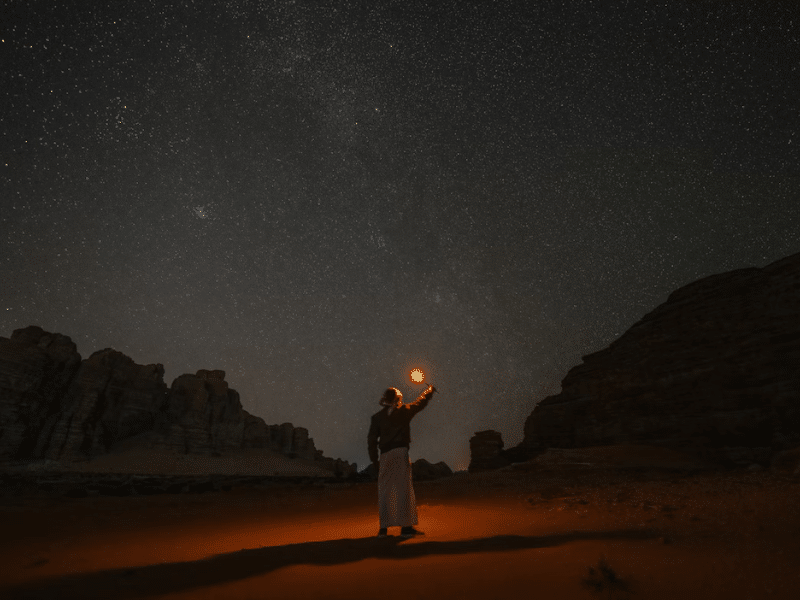
1. Escape The Crowds
We’ve come to our final and favourite benefit of night hiking. No one wants to be queuing up to get to the crest of a hill, or, trudging in a small army on a narrow footpath. Night hikes host fewer crowds and a trail less travelled with hushed surrounds.
Popular trails might be suddenly accessible if you’re willing to forgo the advantages of moving under sunlight. So, if you want to avoid the bustle, why not start your adventure in the evening, or the early hours before sunrise?
Top Articles For Hiking Adventures
Helly Hansen Outdoor Backpacks For Hiking: The Ultimate Guide
10 Best Helly Hansen Hiking Jackets for Men And Women
Patagonia Joggers for Yoga, Hiking, Bouldering and Outdoor Life

